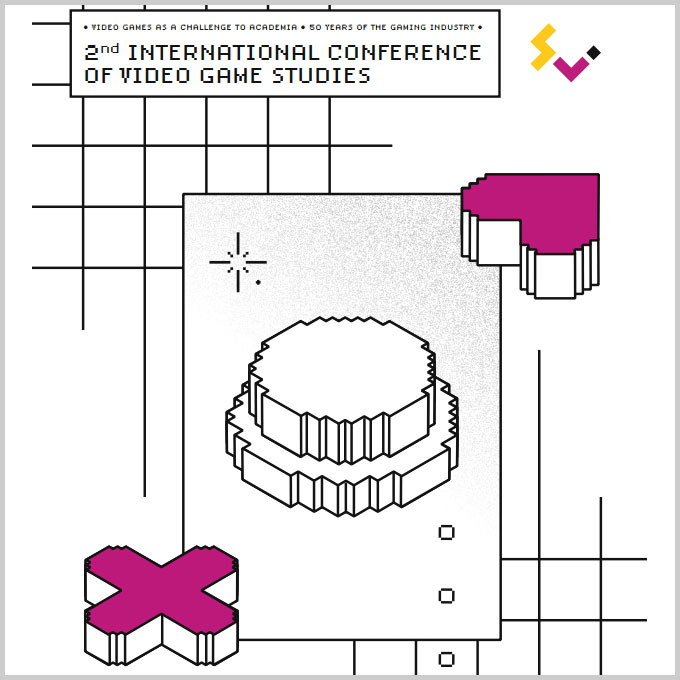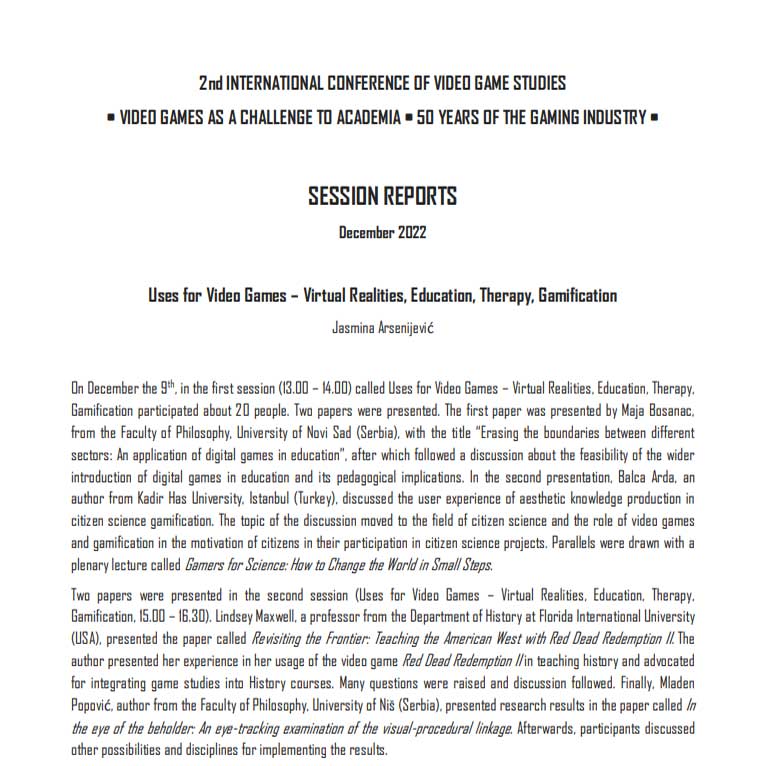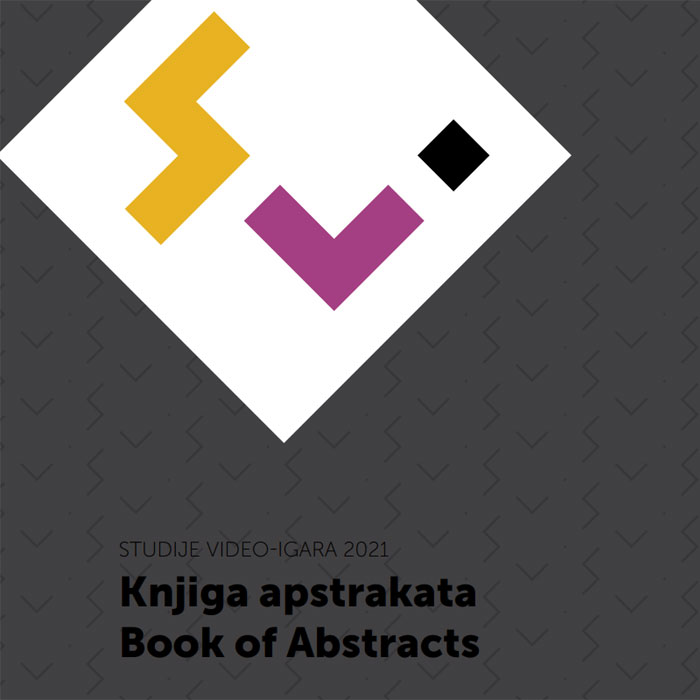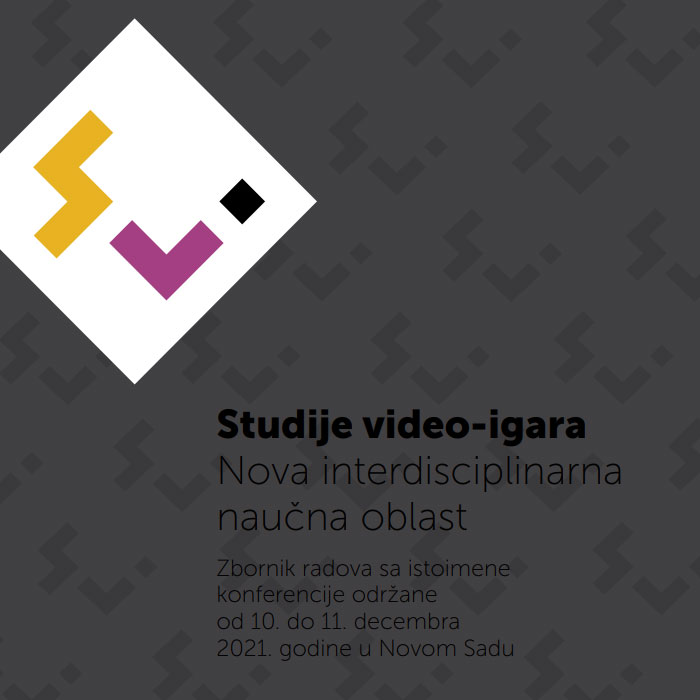SVI Conference 2022
The University of Novi Sad, Academy of Arts
The University of Belgrade, Faculty of Philology
Serbian Games Association (SGA)
Second International Conference of Video Game Studies (SVI)
VIDEO GAMES AS A CHALLENGE TO ACADEMIA
50 YEARS OF THE GAMING INDUSTRY
Novi Sad, Serbia December 9th-10th 2022

Intro
Exactly fifty years ago, in 1972, Magnavox came out with the first home gaming console, designed by Ralph Baer. That same year, Nolan Bushnell and Ted Dabney founded Atari, the first game development company. Atari achieved immense success with Pong, a game that inspired many to try their luck at the game development business, first in the US, then in Japan and Europe, and finally across the globe. These events mark the birth of the largest media industry in existence today. In honour of this anniversary, the Academy of Arts in Novi Sad, in cooperation with the University of Belgrade, Faculty of Philology, and the Serbian Games Association (SGA), are organising the second international conference dedicated to the study of video games in Serbia, Video Games as a Challenge to Academia: 50 Years of the Gaming Industry.

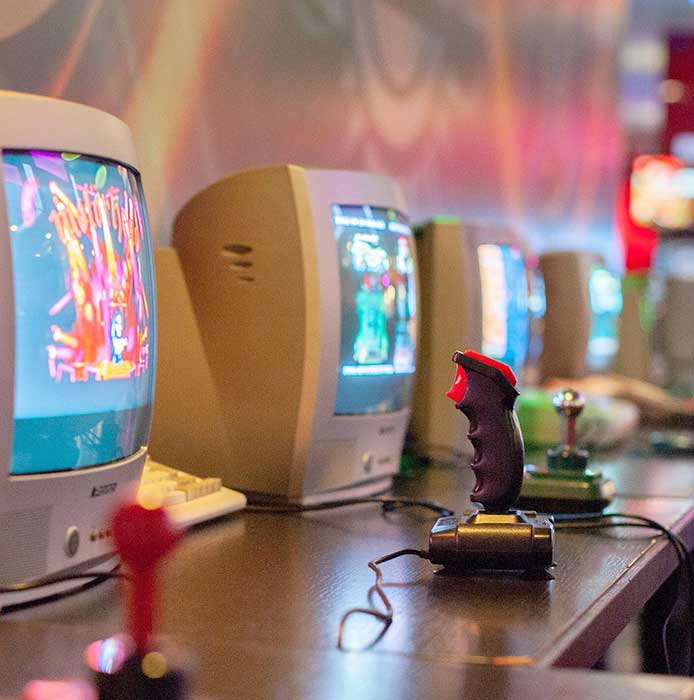
As the product of computer science, video games have been tied to the academic world since the 1950s, when scientists began to create computerized versions of games like chess, checkers, and tic-tac-toe to explore the capacities of artificial intelligence and solve various technical problems. The first commercial games were created by computer scientists, electrical and television engineers; as microprocessors developed and the manufacturing of games evolved, designers, artists, and programmers were gradually included in the process. Today, video games have evolved into something more than mere playthings: they have become a medium in their own right, capable of integrating various existing media and communicating complex messages and meanings. It comes as no surprise then that, over the last few decades, video game production has increasingly required new, practical and artistic skill-sets (programming, illustration, animation, modelling, sound design) and has become the object of a whole range of disciplines (from IT and organizational sciences, narratology and semiology, media and film theory, cultural studies and anthropology, to psychology, sociology, and pedagogy). This convergence points to the necessity of founding the study of video games as a new and interdisciplinary academic field.
Focusing on the scholarship and production of video games, the conference Video Games as a Challenge to Academia: 50 Years of the Gaming Industry examines various aspects and links between them. It was conceived as an opportunity for re-examining and furthering the conclusions reached at last years’ SVI conference, where, for the first time in Serbia, Game Studies were promoted as a new academic field. The previous conference tried to broadly map research areas dedicated to video games in all their variety and managed to bring together researchers from the US, Russia, Germany, China, Great Britain, the Czech Republic and Finland. Unlike its predecessor, SVI 2 strives to examine how academia and the video game industry converge and map out the points where video games and scholarship meet and part ways. It aims to open a dialogue between the gaming industry and academia and foster an understanding of their sometimes diverging goals and interests. Such a dialogue revolves around several key questions: What can scholarship, without giving up on critical thinking, offer the industry, and vice versa? Can the industry survive its crises alone, and should scholarship lend a hand? Can academia remain separate from the industry? Finally, is the market changing gaming, or is gaming conquering the marketplace?
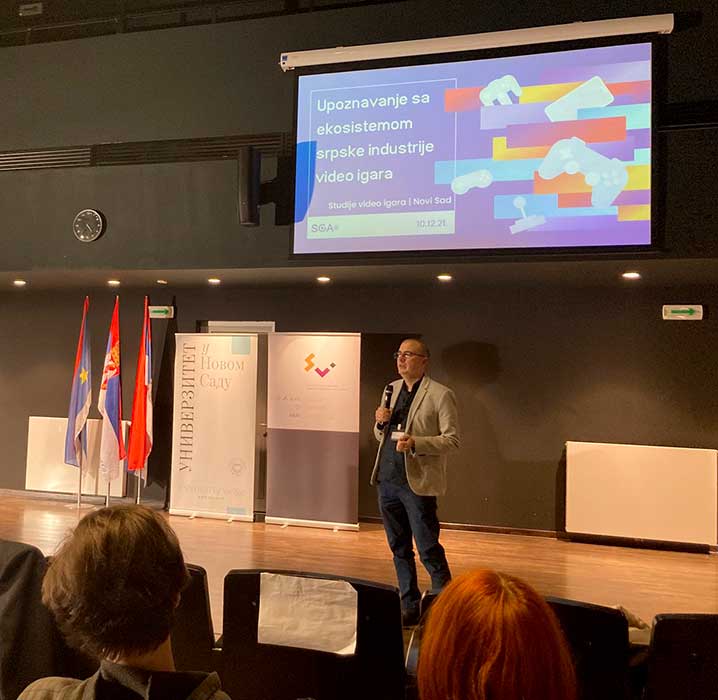

Themes
The conference is organized into three broad thematic sections dedicated to exploring the relations between video games, industry, academia and criticism:

Industry
The publication of Olli Sotamaa’s and Jan Švelč’s Game Production Studies (2021) filled a gap in our understanding of how video games are actually made and the social impact of this process. Their approach has ushered new ways of studying video games from different contexts and opened the discussion on a broad range of topics, e.g., the role of (creative) industries in the production of video games, the creation of study programmes that follow developer training and professionalisation trends, indie developers and their opposition or support of mainstream tendencies, global economic shifts in the manufacturing, distribution, marketing, publishing and monetising of video games, neo-liberal labour issues, the aesthetics of workspaces, and the challenges and possible solutions for issues such as the precariat, crunch, high turnover rates and gender (dis)parity.
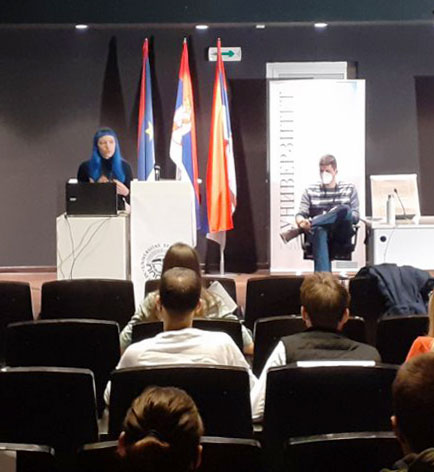

Academia
Despite the traditional link between video games and IT, humanities and social sciences have been involved in Game Studies from the very beginning. In addition to the vital contributions of psychology, anthropology, sociology, and, more recently, archaeology to the understanding of video games, the humanities made their greatest impact by applying narratological methods and philosophical insights to the study of video games. This conference aims to draw attention to the diverse perspectives that the humanities can bring to the study of video games, where even traditional philological methods and issues can provide fresh and innovative perspectives. These include, amongst other things, topics such as localisation, the relationship of traditional and transmedial narratology in the study of video games, the relation between video games and (literary) archetypes and genres, the rhetoric and semiotics of video games, video game adaptations of literary works (case-studies), the link between video games and (national) culture(s), as well as questions of aesthetics and philosophy, like the difference between the phenomenology of reading and phenomenology of gameplay, emotional investment, estrangement (ostranenie) and imaginative resistance in the context of video games, and many more. Contributions dealing with the possibility of interdisciplinary collaboration between hard sciences, social sciences and humanities in the study of video games are especially welcome.

Criticism
The professionalization of video game criticism is one of the key points of convergence between the humanities and the video game industry. Criticism has been a crucial agent of gaming culture since the foundation of the first gaming magazine, Electronic Games, in 1981, where journalists (and enthusiast gamers) presented their thoughts and ratings of the games they were playing. Today, magazines and forums attract large audiences, mainly passionate gamers, that look to them for cultivating their taste and forming their attitudes toward video games. If video game criticism is to become something more than amateurish impressionism or company-solicited advertisement, a greater presence of theory and direct communication with gamers is necessary. The industry should understand that the professionalization of criticism and the promotion of critical discourse is instrumental in revolutionizing the role and value of video games in our society. This is all the more important given that video games are still frequently cast as trivial pursuits and even as dangerous for the mental and physical health of young people. With that in mind, the participants are being encouraged to reflect on the ways that scholars could introduce future generations of students and gamers to different frameworks and politics of interpretation, methods of textual (critical, semiotic, narrative, and mechanic-centred) and contextual (ideological, economic, technological, sociological, and cultural) analysis of video games.
Participation
Abstract Submission
Abstracts between 200 and 300 words in English, with up to 5 keywords, should be sent to [email protected] or through our Contact form before October 10th, 2022.
Important Dates
Submission Deadlines
Abstracts:15 September 202210 October 2022
Notification of Acceptance
Abstracts:10 October 202201 November 2022
Fee Payments Deadlines02 November 2022
Full Papers
Submissions for the edited volume from SVI2 conference are currently under peer review and publication is expected in late 2024.
Participation Options
Online and Live in English language (official language of the conference)
Registration Fee
Live attendance: 30 eur (lunch included)
Online attendance: 20 eur
Presentation Guidelines
In-person attendance (English):
- Presentation Duration:The oral presentations are 15 minutes, followed by 5-10 minutes of Q&A
- For 15 minutes of presentation, you can prepare around 15 slides in PowerPoint, including the introduction and end slide.
- Only MS PowerPoint (*.ppt or *.pptx) presentations will be accepted.
- Email us your presentation until December 7, 2022 at [email protected]
- Please, take with you a copy of your presentation to Novi Sad (USB-stick).
Online attendance (English):
- Online presentations have a duration of 15 minutes, followed by 5-10 minutes of Q&A
- Links for joining will be sent out before the conference.
Online sessions
Understanding Games through Structuring Diverse Approaches
Zoom session from 3.00 to 6.00 PM, CET
Moderator: Stefan Alidini
https://us06web.zoom.us/j/86566514627?pwd=L0NvUVNUd2JUUjdZeFNZUDI5eFpGQT09#success
Academic Pursuits: Interplays between Games and Research
Zoom session from 6.15 to 9.15 PM, CET
Moderator: Dunja Dušanić
https://zoom.us/j/93489721187?pwd=L1V4emFBeGNLNEp6bzMwcnNkOTZXZz09


Committee
Organizing Committee
- Manojlo Maravić – Academy of Arts / University of Novi Sad, Serbia
- Dušica Dragin – Academy of Arts / University of Novi Sad, Serbia
- Stefan Alidini – Faculty of Philology / University of Belgrade, Serbia
- Relja Bobić – Serbian Games Association (SGA)
- Biljana Ristić – Faculty of Philology / University of Belgrade, Serbia
- Danica Stanković – Academy of Arts / University of Novi Sad, Serbia
- Krinka Baković – The Institute of Ethnography SASA, Serbia
- Vesna Trifunović – The Institute of Ethnography SASA, Serbia
- Tatjana Ristić – SGA, Faculty of Philology / University of Belgrade, Serbia
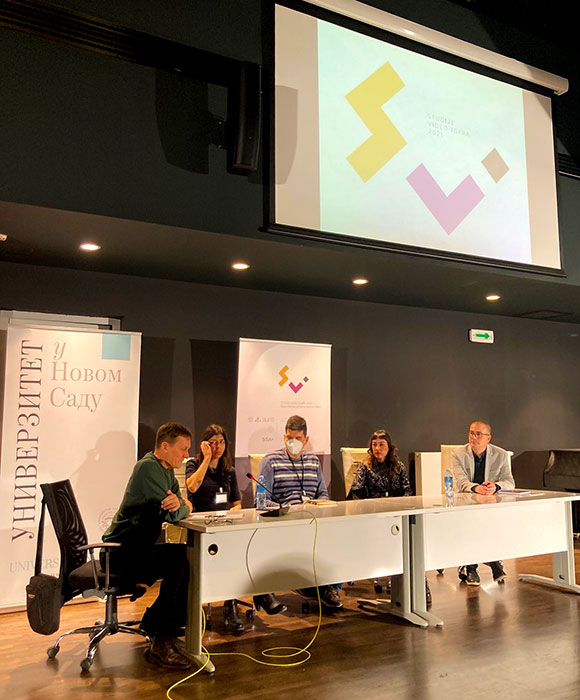
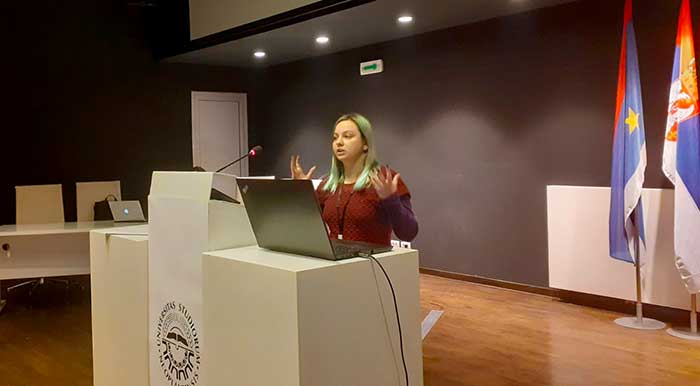
Programme Committee
- Manojlo Maravić – Academy of Arts / University of Novi Sad, Serbia
- Dunja Dušanić – Faculty of Philology / University of Belgrade, Serbia
- Stefan Alidini – Faculty of Philology / University of Belgrade, Serbia
- Relja Bobić – Serbian Games Association (SGA)
- Žolt Lazar – Faculty of Philosophy / University of Novi Sad, Serbia
- Dušan Ristić – Faculty of Philosophy / University of Novi Sad, Serbia
- Mila Bujić – Tampere University, Finland
- Dragan Đorđević – Independent researcher
- Ljiljana Gavrilović – Full professor in retirement
- Marko Suvajdžić – Digital Worlds Institute / University of Florida, USA
- Biljana Mitrović – Faculty of Dramatic Arts / University of Arts in Belgrade, Serbia
- Miloš Jocić – Faculty of Philosophy / University of Novi Sad, Serbia
- Mladen Čudanov – Faculty of Organisational Sciences / University of Belgrade, Serbia
- Gorana Rakić-Bajić – Faculty of Medical Sciences / University of Kragujevac, Serbia
- Jasmina Arsenijević – Preschool Teacher Training College of Applied Studies, Kikinda, Serbia
- Zlatko Bukač – Department of English / University of Zadar, Croatia
- Dobrinka Kuzmanović – Faculty of Philology / University of Belgrade, Serbia
- Ivana Pandžić – Faculty of Philosophy / University of Banja Luka, Bosnia and Herzegovina
- Tijana Milošević – Anti-Bullying Centre and ADAPT SFI / Dublin City University, Ireland
- Krinka Baković – The Institute of Ethnography SASA, Serbia
- Vesna Trifunović – The Institute of Ethnography SASA, Serbia
- Tatjana Ristić – SGA, Faculty of Philology / University of Belgrade, Serbia
SVI 2022
Keynote speaker
Olli Sotamaa

Photo by Jonne Renvall
Olli Sotamaa is a professor of game culture studies at the Tampere University. He also serves as a team leader at the Center of Excellence in Game Culture Studies (2018-2025). His publications cover e.g. local game development cultures, creative labor, user-generated content, and player cultures. Sotamaa’s latest book Game Production Studies (Amsterdam University Press, 2021) edited with Jan Švelch is the first anthology dedicated solely to critical analysis of video game production.
Plenary speakers
Dražen Maravić
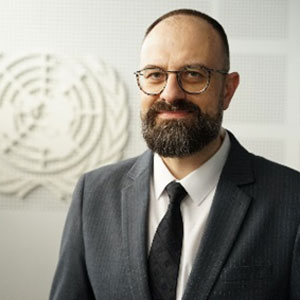
Dražen Maravić is the founder and chief futurist at the Centre for Futures Studies, a development ecosystem established in 2011. with the mission to democratize strategic foresight in Serbia and the region. Dražen worked for 20 years in public administration in senior positions dealing with future, strategy, and change management and in the fields of EU integration and security sector and public administration reform. Since 2020., Dražen works at the UNDP in Serbia as a Portfolio Manager for inclusive political processes and civic participation.
Attila Szantner

Attila Szantner as CEO and co-founder of MMOS set up several citizen science collaborations with major AAA game developers engaging over 3 million players, praised by a worldwide media coverage from the New Yorker to the frontpage of Nature Biotechnology, several documentaries, and awards, like the prestigious Lovie Award or the Innovation Award of the University of Geneva.
SVI 2021
Keynote speakers
Jesper Juul

Jesper Juul is a video game researcher at the Royal Danish Academy. He has written four books on video games, Half-Real, A Casual Revolution, The Art of Failure, and Handmade Pixels. He is co-editor of the Playful Thinking series on MIT Press, and is currently working on a new book about the Commodore 64.
Frans Mäyrä

Frans Mäyrä is the Professor of Information Studies and Interactive Media, with specialization in digital culture and game studies in Tampere University, Finland. Since 2002, he has been heading the Tampere University Game Research Lab, having taught and studied digital culture and games from the early 1990s. He is widely consulted as an expert in socio-cultural issues relating to games, play and playfulness, and has served as the founder and first President of DiGRA – Digital Games Research Association. His research interests range from game cultures, meaning making through playful interaction and online social play, to borderlines, identity, as well as transmedial fantasy and science fiction. He is also the director of the Academy of Finland funded Centre of Excellence in Game Culture Studies.

Contact Us
Feel free to send us your abstract or ask for any additional information.
Address
SVI Conference
University of Novi Sad, Rectory
21000 Novi Sad, Serbia
Dr Zorana Djindjica 1
sviconference.org | all rights reserved
